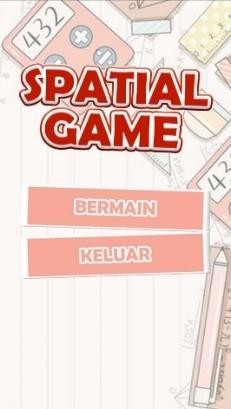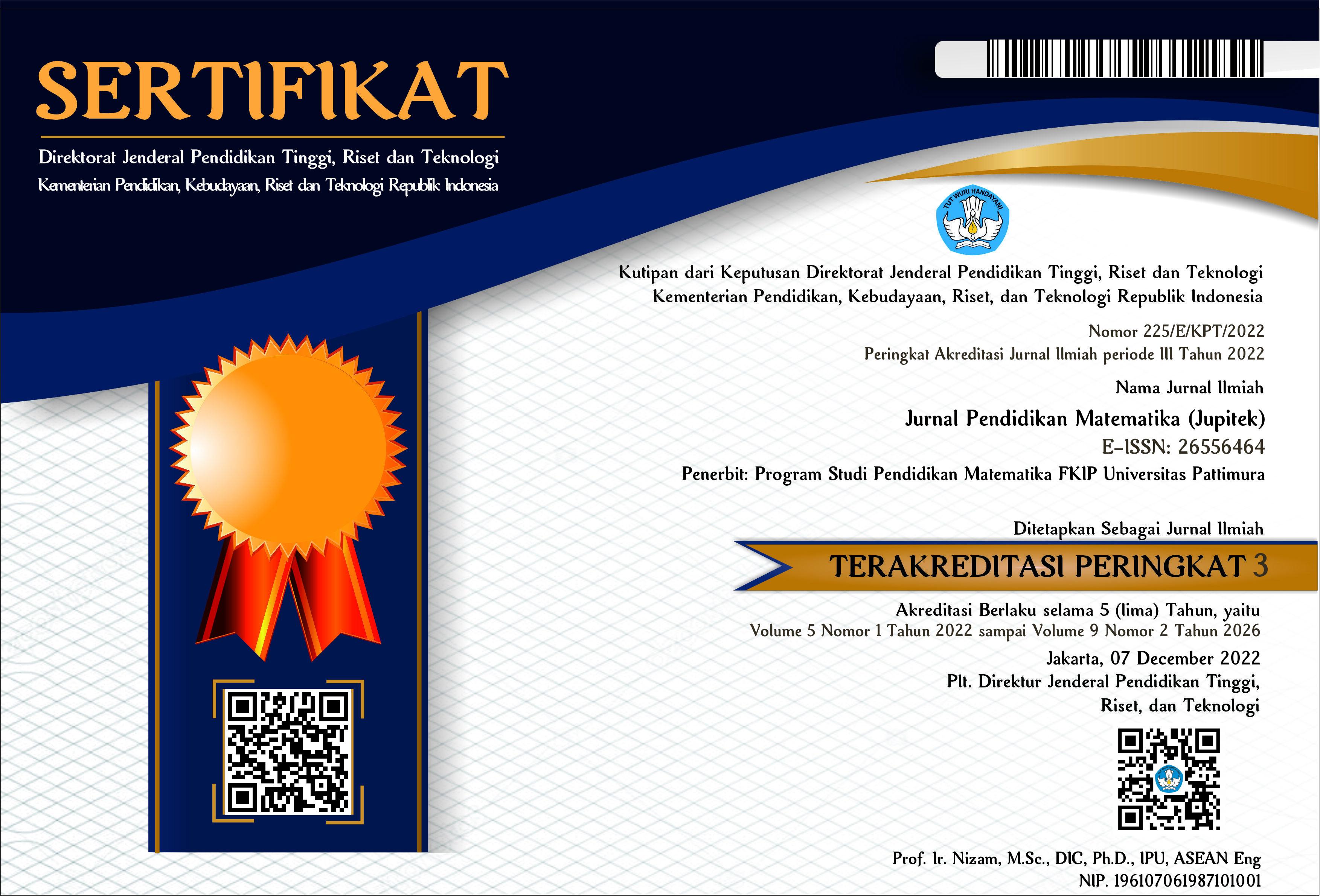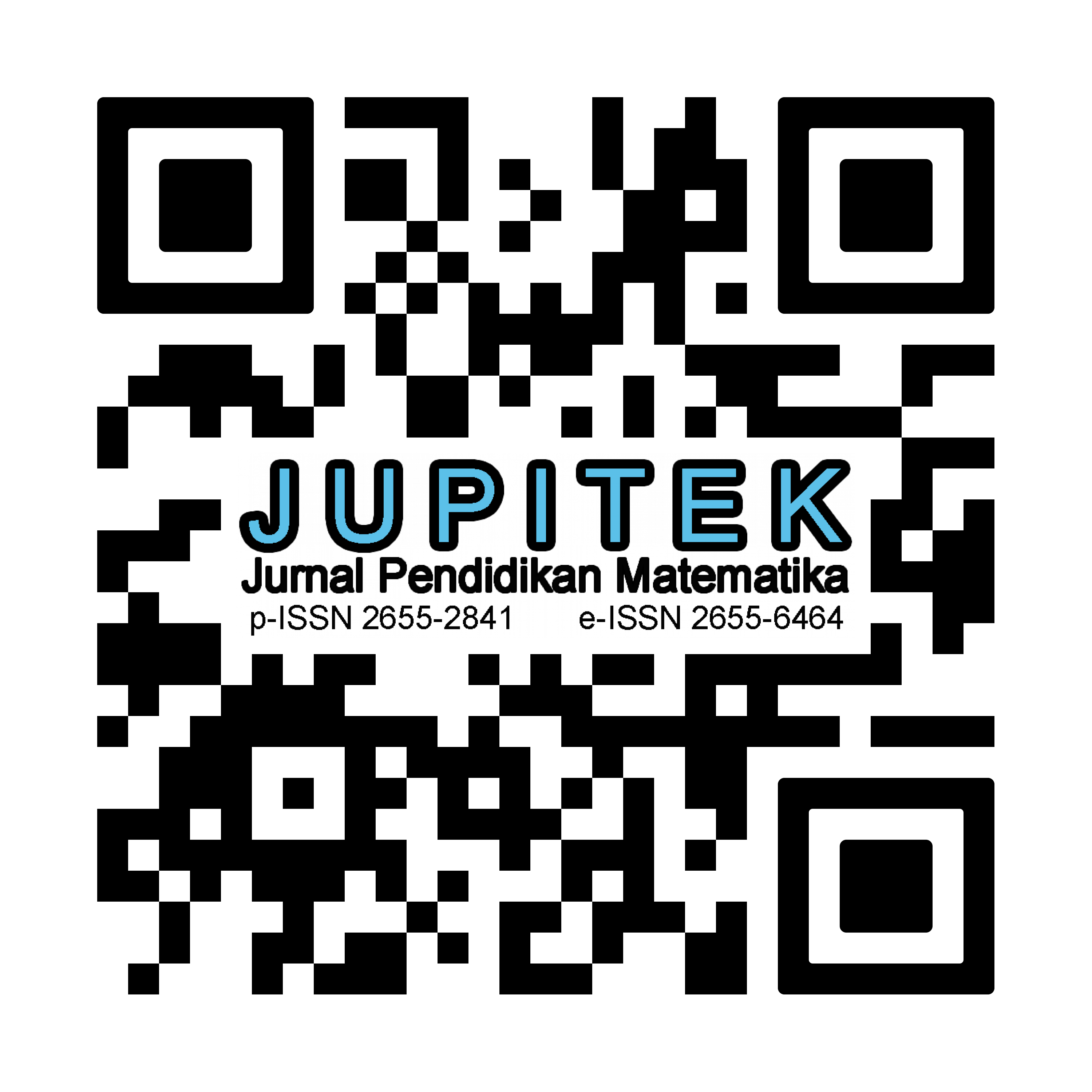ANDROID MOBILE GAME MEDIA BASED ON EDUTAINMENT STRATEGY ON SPATIAL ABILITY
Abstract
This study aims to develop an Android Mobile Game Based on Edutainment Strategy for class VII students of SMP Negeri 3 Pontianak who reach the level of validity, practicality, and effectiveness with the borg and gall model. The subjects in this study were students of class VIII SMP as many as 30 students and 3 media and material experts. The instruments used in this study were media expert validation sheets, teacher responses and student responses, and problem solving ability test questions. The results of validation research on Android Mobile Game Based on Edutainment Strategy are media validation with an average value of 94.28% from the three experts in the very good category. The second is the value of practicality, seen from the value of the questionnaire filled out by the teacher and all students who are accumulated so that a percentage of 92.40% is obtained with very practical criteria. Furthermore, the effectiveness, seen from the value of the results of student posttest work with the number of students who completed as many as 20 people out of 30 people and the average value of students calculated by the formula for the average score and percentage with in the overall student score so that a score of 85.20 was obtained based in the school's KKM score of 75, then the average student test results have complete criteria and are classified as very effective.
Downloads
References
Aprilianti, Y. A., Lestari, U., & Iswayudi, C. (2014). Aplikasi Mobile Game Edukasi Matematika Berbasis Android. Jurnal Script, 2(1), 22-23.
Daeng, I. T. M., Mewengkang, N. N., & Kalesaran, E. R. (2017). Penggunaan smartphone dalam menunjang aktivitas perkuliahan oleh mahasiswa fispol unsrat manado. Acta Diurna Komunikasi, 6(1)
David, D. (2016). Perancangan Game Mobile Android Bergenre Horror. Cogito Smart Journal, 2(2), 167-179.
Jasson. (2009). Role Playing Game (RPG) Maker. Yogyakarta: CV. Andi Offset.
Kartini, N. (2012). Pendidikan Berkelanjutan (Continuing Education) dalam Bidang Vokasi. Prosiding APTEKINDO, 6(1).
Meilana, J. R., Nyeneng, I. D. P., & Suana, W. (2017). Pengembangan modul mobile learning berbasis android pada materi fluida statis. Jurnal Pembelajaran Fisika, 5(5).
Mila, L. A. (2019). Pengembangan media berbasis Android pada pembelajaran Matematika Realistik (Doctoral dissertation, UIN Sunan Ampel Surabaya).
Nasution, E. Y. P. (2017). Meningkatkan Kemampuan Spasial Siswa Melalui Pembelajaran Geometri Berbantuan Cabri 3D. Mathline: Jurnal Matematika dan Pendidikan Matematika, 2(2), 179-194. https://doi.org/10.31943/mathline.v2i2.45
Oktiana, G. D. (2015). Pengembangan media pembelajaran berbasis android Dalam bentuk buku saku digital untuk mata pelajaran Akuntansi kompetensi dasar membuat ikhtisar siklus Akuntansi perusahaan jasa di kelas xi man 1 Yogyakarta tahun ajaran 2014/2015. Skripsi tidak diterbitkan (online). Yogyakarta: Jurusan Pendidikan Akuntansi Universitas Negeri Yogyakarta
Santoso, S. (2018). Penerapan konsep edutainment dalam pembelajaran di pendidikan anak usia dini (PAUD). INOPENDAS: Jurnal Ilmiah Kependidikan, 1(1).
Shodiqin, R. (2016). Pembelajaran Berbasis Edutainment. Jurnal Al-Maqayis, 4(1).
Sudirman, S., & Alghadari, F. (2020). Bagaimana Mengembangkan Kemampuan Spasial dalam Pembelajaran Matematika di Sekolah?: Suatu Tinjauan Literatur. Journal of Instructional Mathematics, 1(2), 60-72.
Tambunan, S. M. (2006). Hubungan antara kemampuan spasial dengan prestasi belajar matematika. Makara Human Behavior Studies in Asia, 10(1), 27-32.
Tri Heru Hadi. (2021). Pengembangan Android Mobile Game Berbasis Edutainment Terhadap Kemampuan Numerik. Skripsi pada IKIP-PGRI Pontianak

Copyright (c) 2022 Khofifah Khofifah, Dewi Risalah, Sandie Sandie

This work is licensed under a Creative Commons Attribution-NonCommercial-ShareAlike 4.0 International License.
License and Copyright Agreement
By submitting a manuscript to Jurnal Pendidikan Matematika (JUPITEK), the author(s) certify and agree to the following terms:
- Originality and Authority: The submitting author is authorized by all co-authors to enter into this agreement. The manuscript describes original work that has not been published previously in a peer-reviewed journal, nor is it under consideration for publication elsewhere.
- Approval: Its publication has been approved by all author(s) and by the responsible authorities of the institutions where the work was carried out.
- Rights: The authors secure the right to reproduce any material that has already been published or copyrighted elsewhere.
- Licensing and Copyright: Authors retain the copyright to their work.
- License Grant: The authors grant Jurnal Pendidikan Matematika (JUPITEK) the right of first publication, with the work simultaneously licensed under the Creative Commons Attribution-NonCommercial-ShareAlike 4.0 International (CC BY-NC-SA 4.0).
- Self-Archiving: Authors are permitted and encouraged to deposit the published version of their article in institutional repositories, on their personal websites, and other academic platforms, with proper acknowledgment of its initial publication in Jurnal Pendidikan Matematika (JUPITEK).





.png)


